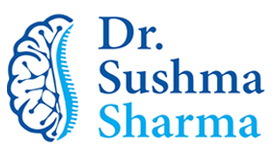- info@drsushmasharma.com
- Sector 16 Faridabad, Haryana - 121002
- Mon - Fri: 8:00 am - 7:00 pm
- Home
- About
- Diseases
- Vertigo & Balance Disorders
- Multiple Sclerosis & Demyelinating Disorders
- Neuropathy & Nerve Disorders
- Dementia & Memory Disorders
- Parkinson’s Disease & Movement Disorders
- Headaches & Migraines
- Epilepsy & Seizure Disorders
- Stroke (Ischemic & Hemorrhagic)
- Sleep Disorders
- Myopathy & Muscle Disorders
- Neck & Back Pain with Neurological Causes
- Neuro Infections
- Autoimmune Neurological Disorders
- Testimonials
- Gallery
- FAQ
- Blog
- Contact

Lorem ipsum dolor sit amet, consectet eiusmod tempor incididunt ut labore e rem ipsum dolor sit amet. sum dolor sit amet, consectet eiusmod.
Visiting Hours
| Mon - Fri: | 8:00 am - 8:00 pm |
| Saturday: | 9:00 am - 6:00 pm |
| Sunday: | 9:00 am - 6:00 pm |
Gallery Posts







- Mon to Sat - 12:00 PM to 4:00 PM – Hospital OPD | 6:00 PM to 7:30 PM – Clinic OPD
Book Appointment
+91 8826552039






